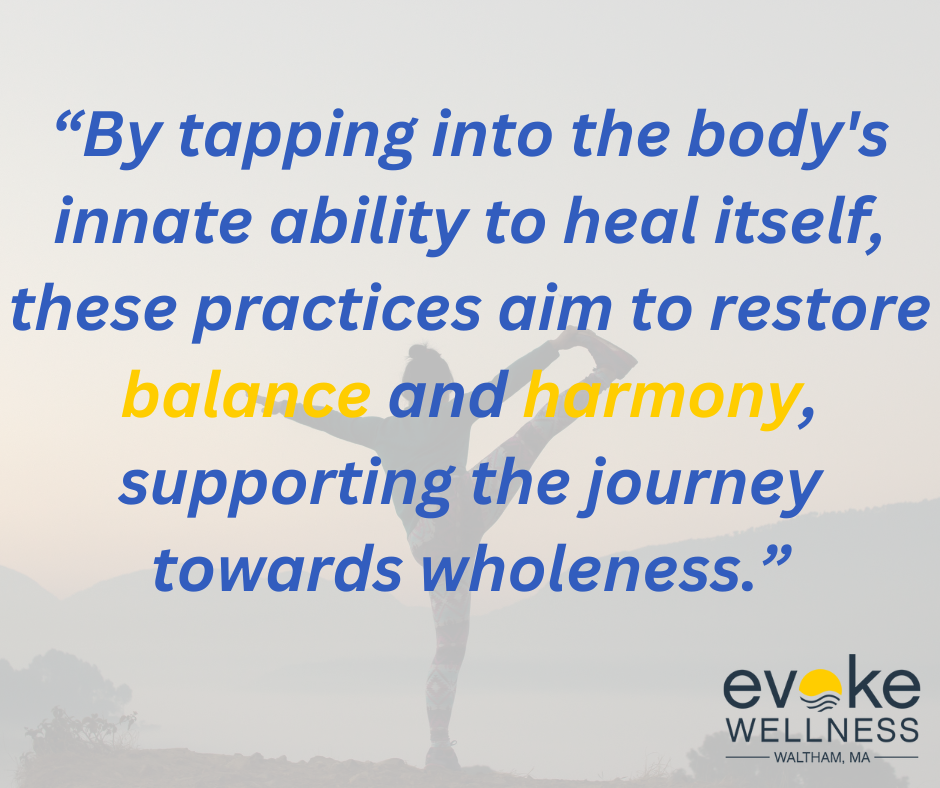Are you or a loved one struggling with substance abuse? Traditional treatment methods can be effective, but integrative therapies offer a holistic approach that may enhance your recovery journey. By combining evidence-based practices with innovative techniques, integrative therapies address the complex nature of addiction from multiple angles. This comprehensive strategy targets not only the physical aspects of substance abuse but also the mental, emotional, and spiritual components. In this article, we’ll explore how integrative therapies, including cognitive and dialectical behavior therapies, can complement conventional treatments to provide a more well-rounded and personalized path to recovery. Discover how blending tradition with innovation could be the key to lasting sobriety and improved overall well-being.
Call us at (833) 287-7223 today or reach out online.
The Limitations of Traditional Substance Abuse Treatment
Traditional approaches to treating substance abuse often rely solely on single-modality therapies. While beneficial, these methods may overlook crucial aspects of recovery.
Narrowed Focus
- Cognitive Behavioral Therapy focuses on changing thoughts and behaviors
- Dialectical Behavior Therapy targets emotional regulation skills
- Both largely neglect physiological factors like nutrition, exercise, sleep
One-Size-Fits-All Mentality
Many programs adopt a standardized, universal treatment plan. This fails to account for individual differences in:
- Genetic predispositions
- Underlying mental health conditions
- Social/environmental influences
Lack of Holistic Support
Conventional treatments tend to concentrate on the addiction itself. They may disregard other life domains that impact sobriety:
- Vocational rehabilitation
- Family therapy
- Legal/financial counseling
Recognizing these shortcomings highlights the need for integrative care. Blending evidence-based psychotherapies with complementary practices can provide a more comprehensive continuum of healing.
The Role of Cognitive Behavioral Therapy (CBT) in Substance Abuse Treatment
Cognitive Behavior Therapy (CBT) focuses on addressing negative thought patterns and behaviors that contribute to substance abuse. Through this approach, you learn to identify and modify irrational beliefs fueling addictive behaviors.
Challenging Harmful Thoughts
- Identifying automatic negative thoughts
- Evaluating the rationality of these thoughts
- Replacing them with more positive, realistic beliefs
Developing Coping Strategies
- Learning skills to manage cravings and high-risk situations
- Practicing relaxation techniques and stress management
- Building a sober support system
Through CBT, you gain insights into your addiction’s root causes. By restructuring thoughts and behaviors, you can develop healthier coping mechanisms vital for sustained recovery. Its structured, goal-oriented nature makes CBT an invaluable part of an integrative treatment approach.
Dialectical Behavior Therapy (DBT) for Substance Abuse
Dialectical Behavior Therapy (DBT) is an evidence-based treatment that combines cognitive-behavioral techniques with mindfulness practices. Its core principles revolve around acceptance and change, making it highly effective for substance abuse disorders.
Emotional Regulation
- DBT helps individuals identify and cope with intense emotions that often trigger substance use
- Specific skills like mindfulness, distress tolerance, and emotional regulation build resilience
Mindful Awareness
- Mindfulness exercises cultivate present-moment awareness and acceptance
- This counteracts tendencies to avoid, suppress or numb difficult experiences through substance abuse
Interpersonal Effectiveness
- DBT emphasizes improving communication and interpersonal relationships
- Building a strong support system is crucial for long-term recovery from addiction
Through its comprehensive approach targeting thoughts, emotions and behaviors, DBT empowers individuals to break the cycle of substance abuse. Its focus on mindful awareness and emotional balance makes it an invaluable complement to traditional addiction treatments.
Integrating Traditional Healing Modalities
Complementing conventional therapies with traditional healing practices can foster a holistic approach to substance abuse treatment. Explore ancient wisdom and time-honored techniques that address the mind, body, and spirit connection.
Mindfulness Practices
- Meditation
- Breathwork exercises
- Guided imagery
These mindfulness modalities cultivate present-moment awareness, reducing stress and promoting emotional regulation – key components in overcoming addiction.
Nature-Based Therapies
- Wilderness therapy
- Horticultural therapy
- Animal-assisted interventions
Reconnecting with the natural world can instill a sense of groundedness, inner peace, and purpose – invaluable elements on the path to recovery.
Energy Healing
- Acupuncture
- Reiki
- Sound healing
By tapping into the body’s innate ability to heal itself, these practices aim to restore balance and harmony, supporting the journey towards wholeness.
What is Defined as Substance Abuse?
Substance abuse refers to the harmful or hazardous use of psychoactive substances like alcohol, illicit drugs, or prescription medications. It involves recurring use despite negative consequences.
Signs & Symptoms
- Inability to control use
- Using in dangerous situations
- Interpersonal, social problems due to use
- Tolerance and withdrawal symptoms
Differentiating Abuse vs. Dependence
Substance abuse differs from dependence in that there is no physical withdrawal when stopping use. However, continued abuse can progress to dependence – a chronic brain disease characterized by compulsive drug seeking and use despite harmful consequences.
Addiction is the most severe form of a substance use disorder, diagnosed when an individual persists in use despite serious problems related to their use. Understanding these distinctions helps guide appropriate treatment approaches.
Examples of Substance Abuse
Common Substance Addictions
- Alcohol
- Opioids (e.g. heroin, prescription painkillers)
- Stimulants (e.g. cocaine, methamphetamine)
- Nicotine
Behavioral Addictions
- Gambling disorder
- Internet/gaming addiction
- Shopping addiction
- Sex addiction
While substances like alcohol, opioids and stimulants are commonly abused, it’s important to recognize behavioral addictions as well. Gambling, excessive internet use, compulsive shopping or sex can also develop into unhealthy addictions impacting one’s life.
Understanding the wide range of substance abuse and addiction is crucial for effective integrative treatment approaches. Combining evidence-based therapies like cognitive behavioral therapy (CBT) and dialectical behavior therapy (DBT) with holistic methods can comprehensively address diverse addiction types.
Conclusion
In conclusion, integrative therapies offer a powerful approach to substance abuse treatment. By combining traditional methods with innovative techniques, you can address addiction from multiple angles:
- Mind:
Cognitive and dialectical behavior therapies help reshape thought patterns
- Body:
Techniques like acupuncture and yoga promote physical healing
- Spirit:
Mindfulness and meditation foster inner peace and self-awareness
As you embark on your recovery journey, consider exploring these integrative options. They may provide the comprehensive support you need to overcome addiction and build a healthier future. Remember, healing is a personal process – be open to discovering which combination of therapies works best for you. With persistence and the right tools, lasting recovery is within your reach.
Begin Your Journey with Evoke Wellness at Waltham
If you or a loved one is considering outpatient treatment, Evoke Wellness at Waltham invites you to contact us. Our compassionate team is ready to answer your questions, discuss your needs, and help you take the first steps toward recovery. At Evoke Wellness, you will find more than just a treatment program – you’ll discover a community dedicated to your wellness and success. Together, let’s embrace the journey to recovery and the promise of a new beginning. Call us at (833) 287-7223 today or reach out online.



